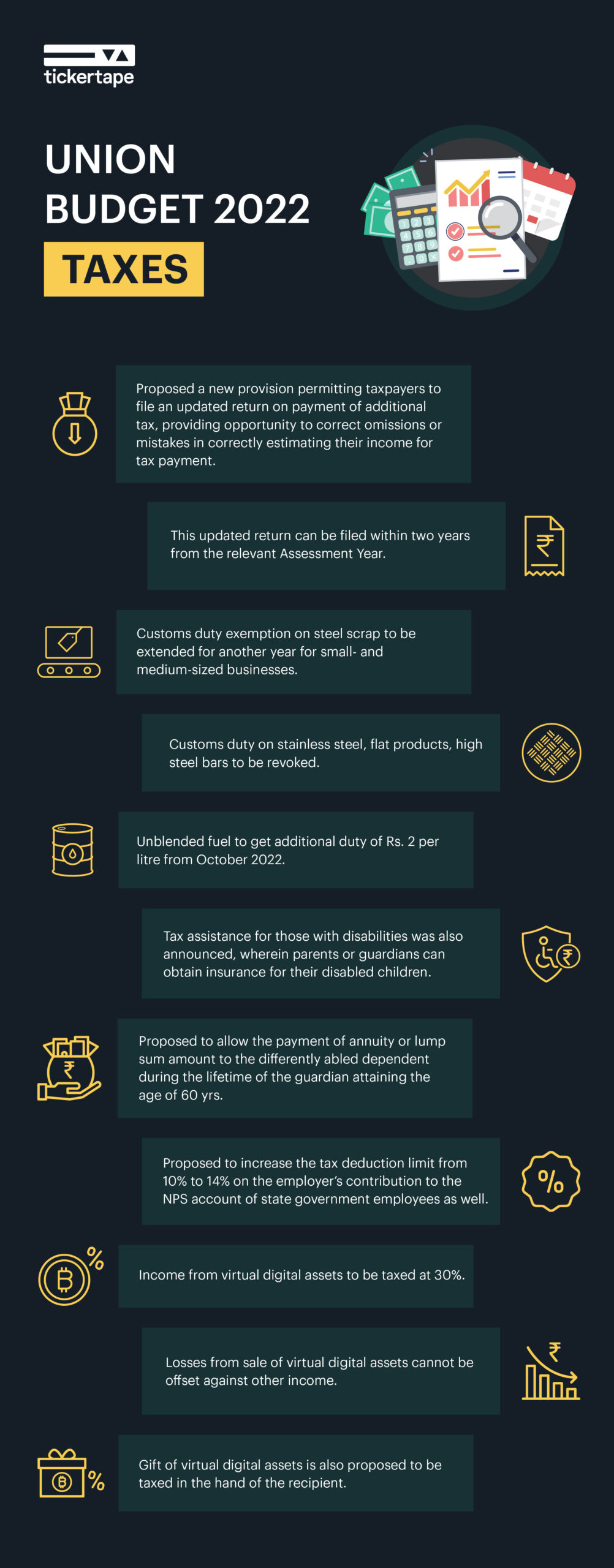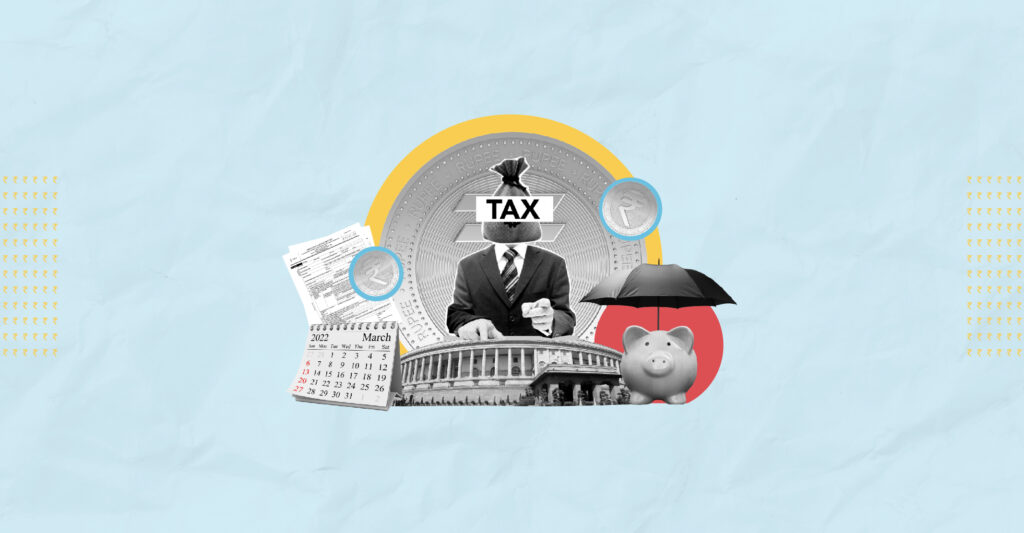Last Updated on Feb 3, 2022 by Ayushi Mishra
Union Budget 2022 was the second paperless budget in Indian history, presented on 1 February by Finance Minister Nirmala Sitharaman. There were a slew of initiatives aimed at boosting the economy in the face of high and growing inflation. However, there were little changes to the personal income tax system. Let’s look at all the tax related proposal updates this year’s Budget brought forward.
Table of Contents
Tax proposals impacting Individuals
- The income tax rates for individuals remain unchanged except, surcharge on all long term capital gain (LTCG) to be capped at 15%.
- Budget 2022 intends to bring more reforms that will establish a trustworthy tax regime. Which in turn will simplify the tax system and promote voluntary compliance by taxpayers.
- The Income Tax department has also established a robust framework of reporting taxpayers’ transactions.
- In this context some taxpayers may realise that they have committed omissions or mistakes in correctly estimating their income for tax payment.
- To provide opportunity to correct such mistakes Nirmala Sitharaman proposed a new provision permitting taxpayers to file an updated return on payment of additional tax.
- Due to this, taxpayers can file the updated income tax returns once within two years from the relevant Assessment Year.
- It is considered to be an affirmative step in the direction of voluntary compliance.
Tax relief to person with disability
- Sitharaman proposed the payment of annuity or lump sum amount to the differently-abled dependent during the lifetime of the guardian attaining the age of 60 yrs.
Parity between employees of the states and central government
- In the National Pension Scheme (NPS), to provide equal treatment for both central and state govt employees, Sitharaman proposed to increase the tax deduction limit from 10% to 14% on the employer’s contribution to the NPS account of state govt employees as well.

Tax exemption on COVID-19-related medical expenditure as well as on financial assistance provided in case of death caused by COVID-19
Exemption for:
- Any amount of money received by an individual from anyone (including the employer) for COVID-19 medical care for self and/or family, subject to specific criteria (as may be notified).
- Any amount of money received by a member of the dead employee’s family from the employer (without limit) due to COVID19-related disease within 12 mths of death, subject to specific criteria (as may be notified).
- Any amount of money obtained by a member of the deceased individual’s family from other people up to Rs. 1 mn. on account of COVID19-related disease within 12 mths of death, subject to specified circumstances (as may be notified).
Virtual digital assets
- Cryptocurrency and non-fungible tokens are examples of virtual digital assets. The federal government will notify other digital properties.
- Income from the transfer of any virtual digital asset will be taxed at 30% beginning in fiscal year 2022-2023.
- There is no deduction permitted for any expenditure (other than acquisition costs) or allowance, or for writing off any loss.
- It is not permitted to set off losses incurred on the transfer of virtual digital assets against any other revenue. Carrying such losses forward to following years is likewise prohibited.
Taxation on gift
- A gift of virtual digital assets is taxable.
Tax deducted at source (TDS)
- Payments made to a resident in exchange for the transfer of virtual digital assets will be subject to a 1% TDS from 1 July 2022.
- The concessional tax rate of 15% on dividends received by Indian corporations from selected overseas companies has been removed with effect from FY 2022-2023.
Limit on tax-free Income from provident funds
- The tax exemption on interest income from provident fund contributions made by workers will be restricted to Rs. 2.5 lakh.
Agriculture and Infrastructure Development Cess
- The cess will be collected on certain imported products such as gold, silver, alcoholic drinks, coal, and cotton, and the basic customs duty will be decreased by the same amount.
- The cess will be imposed at the rates of Rs. 2.5 and Rs. 4 per litre on petrol and diesel, with similar reductions in excise duty.
Changes in customs duty
- Customs duty on various commodities, including cotton, silk, and some car and mobile parts, has now been raised.
Reduction in time for income tax proceedings
- The time limit for reopening income tax assessments will be shortened from 6 yrs to three years.
Exemption from audit
- Businesses that conduct 95% of their transactions online and have a revenue of less than Rs. 5 cr. are exempted from maintaining audited accounts. The limit will be raised to Rs. 10 cr.
Please share your thoughts on the Union Budget 2022 in the comments area below.







